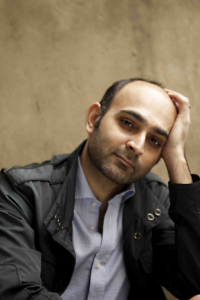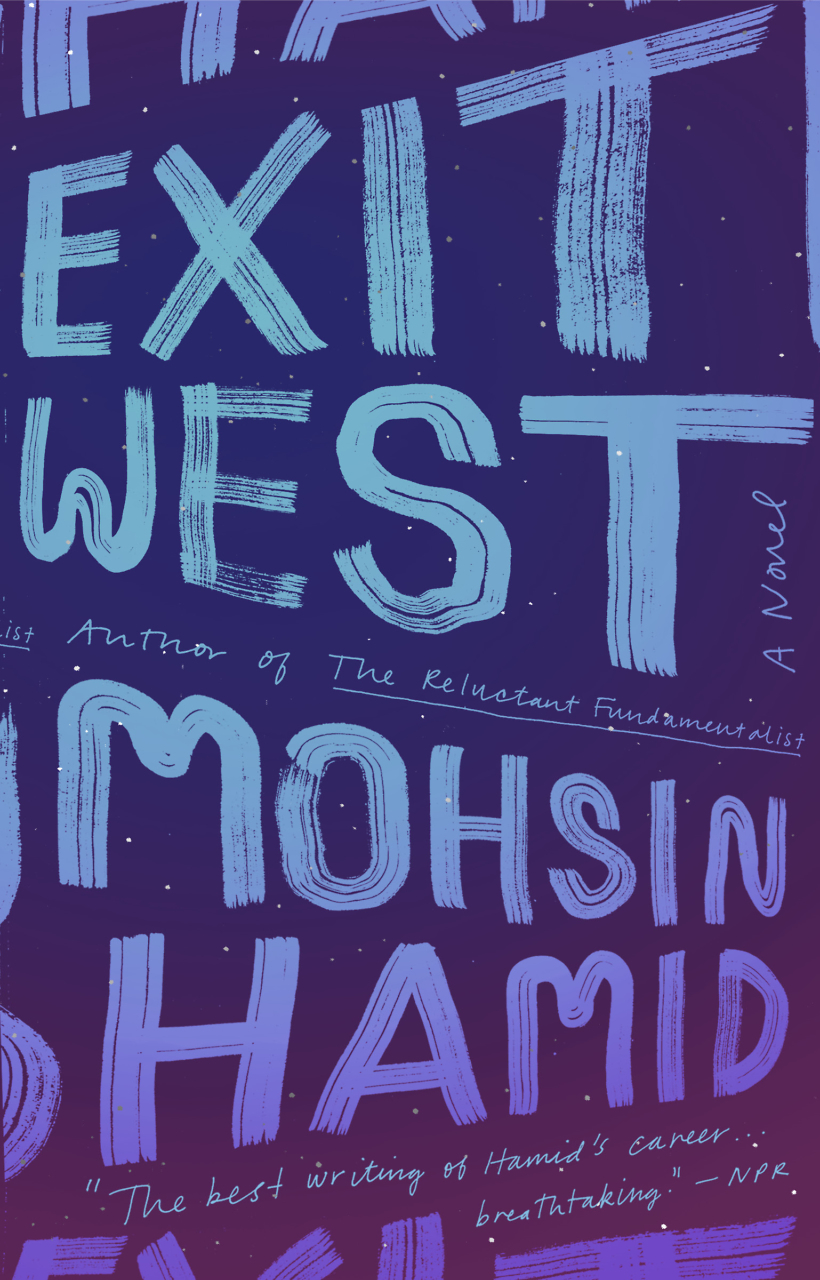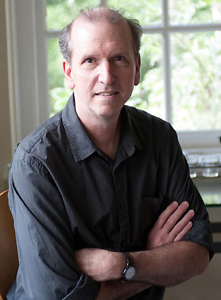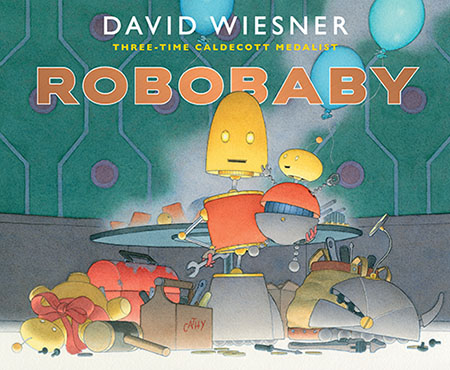A Stubborn, Gentle-Hearted Survivor
Robert Bausch talks with Chapter 16 about his novel of the old West, Far As the Eye Can See
When we first meet Bobby Hale, the protagonist of Robert Bausch’s Far As the Eye Can See, it’s 1876, and he’s alone and on the run in Montana Territory, where “the country is as big as any whole earth I ever dreamed of.” He unhesitatingly shoots an innocent person he mistakes for an assassin, and then, full of remorse, tenderly cares for his wounded victim. He’s a complicated guy, Hale: a stubborn survivor and a bit of a con man but basically gentle-hearted, even sweet. He’s not the sharpest knife in the drawer, but he tries hard to understand the world around him—and he’s always as smart as he needs to be. Bausch places this interesting fellow in the great current of settlers and opportunists who headed west after the Civil War and creates a riveting story out of Hale’s efforts to stay alive and find some sort of human connection in a violent, unforgiving environment.
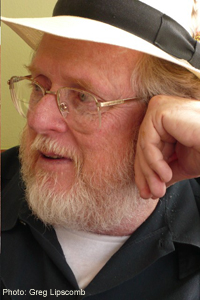 Far As the Eye Can See is told entirely from Hale’s point of view, but Bausch gives his experience a broad, rich context. The book is filled with period detail, and it makes brilliant use of the western landscape. The Civil War, only four years in the past when the events of the story begin, is an ever-present ghost. Conflict between whites and Native Americans provides much of the book’s action, and it is depicted in all its brutality but also with unfailing sympathy for the humanity on both sides.
Far As the Eye Can See is told entirely from Hale’s point of view, but Bausch gives his experience a broad, rich context. The book is filled with period detail, and it makes brilliant use of the western landscape. The Civil War, only four years in the past when the events of the story begin, is an ever-present ghost. Conflict between whites and Native Americans provides much of the book’s action, and it is depicted in all its brutality but also with unfailing sympathy for the humanity on both sides.
Bausch has previously published eight novels, as well as a book of short stories. A Hole in the Earth (2000) was praised by The New York Times as “a splendid novel, original in the best sense.” It was named a Washington Post Favorite Book, as was his 2005 novel, Out of Season. Bausch won the Fellowship of Southern Writers’ Hillsdale Award for Fiction in 2005 and the John Dos Passos Prize for Literature in 2009. Like his identical twin brother, former Memphis resident Richard Bausch, Robert Bausch is a highly regarded teacher of writing. He has taught at the University of Virginia, American University, George Mason University, and Johns Hopkins. He is currently on the faculty of Northern Virginia Community College.
Prior to his appearance at Burke’s Book Store in Memphis, Bausch answered questions from Chapter 16 via email:
Chapter 16: The western as a genre was in its heyday when you were a kid. Did you have a particular love for westerns growing up?
Bausch: No more than the average. When I was a kid I was more interested in the Civil War than perhaps any other thing. I wrote a novel when I was in the eighth grade about a Confederate soldier in the Civil War. It was 484 legal-pad pages. Weighed six and a half pounds, I think. I watched the usual TV westerns because my parents watched them: Gunsmoke, Have Gun Will Travel, The Rifleman, Broken Arrow. I liked some western movies—the better ones with character like Hombre, and Little Big Man. I liked some John Wayne movies when I was a kid, but gravitated toward the more realistic westerns as I grew up. Two of my favorite films of all time are Lonesome Dove, and McCabe and Mrs. Miller. But I liked lots of other stories that weren’t westerns. I wouldn’t say I have a particular interest in them.
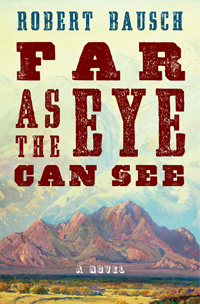 Chapter 16: You’ve said that Allen Wier’s novel Tehano inspired you to take on the writing of a western, but can you tell us a little about the genesis of Bobby Hale as a character?
Chapter 16: You’ve said that Allen Wier’s novel Tehano inspired you to take on the writing of a western, but can you tell us a little about the genesis of Bobby Hale as a character?
Bausch: First, Tehano is a great novel. It inspired me to see what my imagination might do with a similar place and time. The name Bobby Hale was temporary. When I started typing this novel, I didn’t want to waste time looking for a name; I knew he’d been a bonus jumper during the war—I wanted that because I wanted some taint of dishonesty in his past, just to make him interesting to me as I typed along. I had a minor character in my fourth novel, The Gypsy Man, named Bobby Hale, so I just used that name when I began, fully intending to change it later. But as I got going with it, he sort of grew on me as Bobby Hale. I didn’t know he had red hair until midway through the book when Eveline comments on it. I didn’t know he would meet Eveline until he met her; I didn’t know exactly when this was taking place, I just knew it was in the nineteenth century. I’d just seen the Coen Brothers’ version of True Grit, which, since they wanted to be true to the book, was almost exactly the same in the dialogue and most of the events as the John Wayne version. I watched both of those films. I’d put Bobby on a horse named Cricket, so that’s how I knew it was in the nineteenth century and in the big West. The more I worked on it, the more it seemed right to me.
Chapter 16: Bobby Hale is very good at doing what he has to do to survive, and he doesn’t hesitate to kill when he thinks it’s necessary, but he’s really a tender soul. What do you think saves Bobby from becoming as cruel and hard as many of the men around him?
Bausch: I like to think it’s his basic humanity. I don’t believe many people are purposely cruel or evil. I know there are enough to occupy a small city, but when you consider the vast numbers of people who populate our cemeteries, and who lived their lives the best they could, engaging themselves favorably with family and friends, and who cared for justice when they could and tried very hard to do no harm, it’s pretty amazing and finally wonderful, isn’t it? The truly good people who come and go on this earth without notice make up the whole human race, really. It’s the reason Bobby can’t simply leave Ink on the trail to die. He just can’t. He never would. He is not a hero by any stretch; he is selfish at times; he has no true interest in “building a nation,” or much of anything else beyond himself; but the truth is, this country was built by people exactly like Bobby Hale.
Chapter 16: Far As the Eye Can See has several interesting female characters—more than a lot of readers would expect to find in a novel with a western theme. Did you make a deliberate choice to balance the sexes when you were developing the story?
Bausch: I don’t think so. I don’t like to create characters based on gender; I tell my students to create with names—to always inhabit their characters and be aware of “What does Julie do here?” or “How does Julie respond to this?” rather than “What would a twenty-year-old woman do here?” or “How would a forty-two-year-old woman respond to this?” and so on. Be the character; think what the character thinks, not the character’s gender.
All I wanted in the story was to create “characters” who were alive, human, and, because of their quirkiness and humanity, memorable. Having said that, I guess I have to confess that I admire women way beyond reason for what I know they have to put up with every day. I don’t really know how they can do all that is required of them in a single day, whether or not they work a full-time job outside the home. When my wife had knee surgery recently, I had to take over her duties as well as keep up with my own. From first light to darkness there were decisions to make: laundry to sort, wash, dry, and fold; breakfast to prepare and serve; clean up after that so lunch could be prepared and served. Dinner had to be planned and shopped for. Groceries put away. Dinner prepared, served, and then cleaned up. The next day, more laundry to sort, wash, dry, and fold—every day, essentially, or the whole thing just overwhelms you. A house to keep dusted and cleaned and in some kind of order; more meal planning, every day—from morning to dark, meal planning. Add that to grading papers and teaching classes and trying to write, and you begin to see what silliness it is to suggest that a woman should not be allowed in combat. I’d put an entire division of them in the field, and we’d see how long any bloody war would last.
Chapter 16: You’re known for encouraging your students to push through and write to the end of a first draft without thinking too much or correcting anything. But how does that work with a heavily researched novel like Far As the Eye Can See, with all its precise details of another time and place? Surely you have to consult notes as you go.
Bausch: No, I didn’t make notes. I read a lot. I read four to six books at once. I always have. I read in four to six—sometimes seven or eight—books at all times. When I was into this book, typing along, and I realized it was going to be taking place in the West during the Indian wars, those were the only kind of books I read. I listed them in the acknowledgments at the end of the book. I was reading all those books at the same time, while I was typing.
One of the things I tell my students is that if you want to write well you have to be perfectly willing to write badly; to make awful stuff, full of wildly stupid mistakes and bad turns and so on. Thus, I tell them, “You’re not writing in those first drafts; you’re typing.” When I was typing, I put in a lot of interaction between Custer and Bobby, but it’s not in the book. I cut all of it out. He never meets Custer. That decision came later—and it was based on his location, and when and where Custer was at the time. I couldn’t have him meeting Custer if he was going to start out from Bozeman and Fort Ellis. I had a choice: cut the Custer parts, or go back and completely re-write and re-locate all of the chapters around Bozeman. I didn’t want to do that. But while I was typing, all that stuff was going on. You start to “write” a book after you’ve “typed” it. Write your way to the end, see what you’ve got, and go from there.
Chapter 16: In the acknowledgments, you write that “what happened to the American Indian was a colossal tragedy that could not have been avoided,” given the vast difference between Native American and European cultures. Are you saying there’s no place for morality in a consideration of history?
Bausch: No, I’m saying there’s no place for one morality when considering history. First, we cannot impose our current sense of morality and justice on an earlier time. That’s silly and leads to some pretty ridiculous judgments—I had a student say to me once, “John Donne was a sexist.” This handed me a sad laugh. By today’s standards, all the males and most of the females born before Mary Wollstonecraft were sexists.
I don’t think morality is subjective, or relative, either. Not really. Each culture has its own vision of right and wrong, true, but we should never expect that the particulars of any two morality systems will match; rather it’s important that both have a system of moral belief and strive to live accordingly. In spite of the spiritual differences between the natives and the Europeans, both believed in a kind of justice, in family and joy, love and friendship, loyalty and generosity, and just about everything human beings have come to cherish about life. Both had a version of evil and good. Both strived for the good. And truthfully, their ideas about that were not that different; the problem was the underlying logic and means of achieving goodness that made their conflict inevitable. Goodness for the Indians was in what is now, for the Europeans it was in the future. Goodness for the Indians was in balance and nurturance of the order of things; for the Europeans it was in speed and change.
Chapter 16: You had seven books published between 1982 and 2005, and then you self-published a couple of novels, In the Fall They Come Back and The Legend of Jesse Smoke, before Bloomsbury picked up Far As the Eye Can See. Since you’ve been on both side of the fence, so to speak, do you have thoughts to share about Amazon and the issue of self-publishing?
Bausch: It was fun designing my own covers, picking the font and chapter headings, and working toward a book on my own. I’ll always treasure the “purity” of that. But I was not good at designing those books. I thought I was, but then when I got back in the game and learned, once again, how it can go when it is done professionally, I realized how bad I was at it. Those books I self-published don’t exist anymore. I’ve completely re-written both of them. I’ve tried to take them down off Amazon but I’m told they’re still there.
The problem with self-publishing is the continuing stigma: the work was published by the writer, most of the time, because nobody else wanted it. That is not always the case, but it is the reputation that lives on. Plus, self-published books are still not truly accepted by the various important publishing entities—you can’t submit for a Pulitzer, or a PEN/Faulkner, or any of the other valuable and prestigious prizes; you can’t expect much in the way of exposure either. I entered one of my books into Amazon’s contest for the best “Indie” book, one year. I got notice that it didn’t make it through the first cut, more than 250,000 titles. I was not surprised. I think they narrowed that field down to 25,000. Winning that contest was only a little more likely than winning the lottery!
Chapter 16: We usually ask authors what they’re working on or what they’re currently reading. Any chance we could get you to tell us both?
Bausch: I just finished a complete re-write of The Legend of Jesse Smoke. I’ve started another book; I’m typing The Last Time Margaret Came Home. I don’t know much about it yet; I know Margaret has not been home in a long time, and when she gets there, her father can’t hear her at the door. He’s lost his hearing. Also, she discovers her mother is not home. He doesn’t know where she is. That’s where it is now. I don’t yet know why she’s been gone so long, or what happened to her mother, or why her father doesn’t know. I’ll find out in the typing.
I just finished reading The Great Influenza, by James Barry, a great book. Now I’m reading his history of the great Mississippi flood, Rising Tide. I’m well into and admiring my brother Richard’s novel, Before, During, After—he really is a master, you know. I’m not speaking from anything but my awareness of literary merit as a teacher of the world’s great literature for the past forty years. Also I’m reading Ron Carlson, At the Jim Bridger, Tom Zoellner’s Uranium, and Robert Conquest’s book on Stalin. Not to mention fifty student papers a week.

Maria Browning is a fifth-generation Tennessean who grew up in Erin and Nashville. A graduate of Mount Holyoke College, she has attended the Clothesline School of Writing in Chicago, the Moss Workshop with Richard Bausch at the University of Memphis, and the Sewanee Writers’ Conference. She lives in White Bluff.
